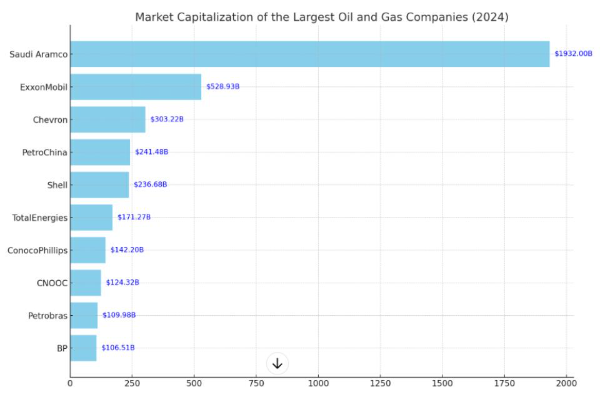
The oil and gas industry remains a crucial part of the global economy, powering homes, businesses, and transportation. Despite the push towards renewable energy, oil and gas continue to be indispensable. However, the sector faces increasing pressure to reduce its environmental impact and improve sustainability practices.
The oil and gas sector accounted for nearly 42% of global CO2 emissions, emphasizing the need for cleaner technologies. The largest companies by market capitalization as of 2024 include:
These companies wield significant financial power, allowing them to drive change or perpetuate environmentally harmful practices.
Net profits for these companies in 2023 were substantial. For instance, ExxonMobil reported a profit of $56 billion in 2022, though it experienced a decline in 2023. Despite this, ExxonMobil, along with BP, Shell, Chevron, and TotalEnergies, allocated over $100 billion to shareholder payouts, including dividends and stock buybacks. This allocation often exceeds investments in clean energy and R&D, raising concerns about greenwashing and prioritizing short-term shareholder returns over long-term sustainability.
Oil and gas companies have an ethical responsibility to mitigate their environmental impact. This includes setting ambitious carbon reduction targets, adopting cleaner technologies, and engaging in transparent reporting practices. Furthermore, they must prioritize employee welfare by investing in safety training, fair wages, job security, and opportunities for reskilling and upskilling.
Consumers and shareholders are increasingly demanding cleaner energy alternatives and greater investment in renewable sources such as solar, wind, and biofuels. Companies must respond by diversifying their energy portfolios and offering greener options to meet these demands and maintain market relevance.
A critical issue is the allocation of profits. While significant funds are directed toward shareholder payouts, a substantial portion should be reallocated to R&D focused on sustainable energy solutions. Allocating 20-30% of profits to R&D could drive innovation and ensure long-term sustainability.
Looking ahead, the future ecosystem in 50 years could feature minimal reliance on fossil fuels, with renewable energy sources dominating the landscape. This transition will create new job opportunities in sectors such as solar and wind energy, battery technology, and energy efficiency. Achieving this vision will require collaboration between governments, companies, and consumers, along with substantial investment in R&D and infrastructure.
The oil and gas industry stands at a pivotal moment. To secure a sustainable future, it must embrace innovation, transparency, and responsibility. By investing in green technologies, prioritizing employee welfare, and committing to genuine sustainability efforts, the sector can continue to provide essential services while mitigating its environmental impact. The next 50 years will be critical, and the actions taken today will shape the world for generations to come.
References:
3. IEA


